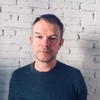A 2017 protest in Manila denouncing Duterte's drug war killings. Photo: Noel Celis/AFP via Getty Images
Philippine President Rodrigo Duterte used a major U.N. speech on Tuesday to launch a bizarre attack on human rights groups critical of his war on drugs, calling them “malevolent” people who “ooze blood,” spread propaganda in schools, and use children as human shields.“A number of interest groups have weaponised human rights, some well-meaning, others with ill-intention,” said Duterte, who like other leaders delivered his speech to the United Nations general assembly by video link due to the pandemic.“These detractors pass themselves off as human rights advocates, while preying on the most vulnerable humans, even using children as soldiers or human shields in encounters,” he said. “Even schools are not spared from their malevolent and anti-government propaganda. They hide their misdeeds under a blanket of human rights, but the blood oozes through.“The Philippines will continue to protect the human rights of its people, especially from the scourge of illegal drugs, criminality and terrorism.”Duterte’s address to the U.N.’s general assembly is the first since he was elected in 2016, and comes as his relationship with international organisations is at a low point over a bloody war on drugs that has allegedly targeted huge numbers of dealers, users and bystanders, sometimes using hired death squads.Yet the 75-year-old leader rebuked outsiders for meddling in the affairs of the Southeast Asian country and for trying to dictate its drug policy.“They attempt to discredit the functioning institutions and mechanisms of a democratic country and a popularly elected government, which in its last two years still enjoy widespread approval and support,” Duterte said.“To move forward, open dialogue and constructive engagement with the United Nations is the key. But this must be done in full respect of the principles of objectivity, non-interference, non-selectivity and genuine dialogue,” he said. “These are the fundamental bases for productive international co-operation on human rights.”Duterte’s scorn for the U.N. and human rights groups dates back to when outgoing Secretary-General Ban Ki-moon chided him over his human rights record in 2016. He started lashing out at the international body and its agencies after they called on him to end his war on drugs. On some occasions, Duterte has threatened to withdraw from the UN, calling it “inutile” or useless.It is almost impossible to know exactly how many people have been killed in the country’s war on drugs since Duterte came into power in 2016. But human rights groups, including the Commission on Human Rights, an independent government body that monitors violations in the Philippines, estimated the death toll to be between 27,000 to 30,000.The police deny this figure, and say there have been 7,000 drug-related deaths and that 2,679 people have died in anti-drug operations since Duterte assumed office. The Philippine government has blocked any independent investigation on the drug war by foreign parties.Since a damning report on the human rights situation in the country was presented to the Human Rights Council in June, there has been little progress. In addition, the Duterte government formally withdrew from the founding treaty of the International Criminal Court (ICC) in 2018 after it received formal complaints about the Duterte administration’s alleged human rights violations.Shortly after Duterte’s speech, Giada Girelli, a human rights analyst at Harm Reduction International, a global drug policy NGO campaigning to stem the violence in the Philippines, told VICE News that his threats against “interest groups” are very real.“Human rights activists in the Philippines face pervasive and persistent attacks, often with fatal consequences,” she said." Girelli added that the Office of the High Commissioner for Human Rights recently reported that over 200 human rights activists, trade unionists and journalists have been killed between 2015 and 2019. “The killings have continued during the COVID-19 pandemic, with two human rights defenders killed just last month,” said Girelli.“Calls for non-interference, non-selectivity and objectivity are Duterte’s latest attempt at avoiding international scrutiny and accountability. The international community, and particularly the Human Rights Council, should not fall for this propaganda. They must ensure that he and his government are held accountable by establishing an independent investigation,” she added.A Duterte presidential spokesperson said before the address that he did recognise the Philippines “cannot do it alone and the United Nations is the world's biggest platform where one country can articulate a country's principled position.” Duterte is also under fire at home for his handling of the coronavirus pandemic, which has infected nearly 300,000 people in the Philippines, one of the highest rates in Southeast Asia.
Advertisement
Advertisement
Advertisement

